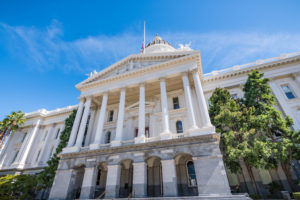Focus on Hawaii
Aloha! This month we travel west to the island paradise of Hawaii. In the state, you can attend a luau to experience true Hawaiian culture, relax on the beach or hike in one of the many tropical forests or mountains.
Hawaii is unique because it the only state made up of part of the volcanic Hawaiian archipelago, which consists of hundreds of islands spread over 1,500 miles. At the southeastern end of the archipelago are eight islands known as the state of Hawaii. They are: Niihau, Kauai, Oahu, Molokai, Lanai, Kahoolawe, Maui and Hawaii.
Due to its central location in the Pacific Ocean and its 19th-century labor migration, Hawaii’s culture is strongly influenced by North American and Asian cultures, in addition to its indigenous Hawaiian culture. This is exhibited by the many customs and food cuisines that the state has to offer. For example, it is customary to bring a small gift for one’s host (i.e., a dessert). Many Hawaiian plates have been influenced by Polynesian, Asian and American foods as well.
How States Have Benefited From The Wayfair Decision
 Over the last several years, the U.S. Supreme Court's decision in South Dakota v. Wayfair has led to rule changes regarding online sales tax in almost every state in the country.
Over the last several years, the U.S. Supreme Court's decision in South Dakota v. Wayfair has led to rule changes regarding online sales tax in almost every state in the country.
The ruling, that South Dakota's economic nexus law was constitutional and that the state could require companies who met certain sales thresholds to collect and remit sales tax on sales to South Dakota customers, even if the company had no physical presence, has impacted states, retailers, online marketplaces and even brick-and-mortar businesses.
In this article, we'll discuss the positive effects of the Wayfair ruling on states that have implemented Wayfair-related legislation.
Perhaps most notably, Wayfair-related legislation and economic nexus have allowed states to fare better during the pandemic than states that have not implemented it.
The pandemic resulted in an explosion of online shopping in the spring of 2020, which has persisted in the time since. Those states that have economic nexus in place have seen a drastic increase in tax revenue from online sales tax collections, especially as many retailers have triggered economic nexus in states they previously did not have nexus in.
As one example, Texas is facing budget shortfalls due to the pandemic, but it is far less than was originally projected, largely in part due to the implementation of Wayfair-related legislation.
Even before the pandemic took hold in early 2020, states have been experiencing the financial benefits of economic nexus and marketplace facilitation.
In 2018 alone, more than 20 states implemented Wayfair-related legislation, with another 20 implementing it in 2019. While not every state has reported specific numbers in regards to the increase in online sales tax revenue they have seen due to these laws, the revenue increases are pretty much across the board.
Lawmakers in the two remaining states with a general sales tax that have yet to implement economic nexus, Florida and Missouri, are pushing hard for 2021 to be the year it gets implemented.
States have also been able to cash in on additional revenue collected from marketplace facilitators. While these gains are not as impressive as the revenue from economic nexus laws, marketplace facilitation legislation has allowed states to standardize and concentrate on large marketplace facilitators as a source of tax revenue as opposed to trying to source taxes from many small online retailers.
Overall, states have largely benefited from the Wayfair decision and further advancements to economic nexus and marketplace facilitation legislation are sure to be on the way.
If you have questions regarding Wayfair-related legislation, or any other state sales tax compliance questions, please contact us today. We're happy to clarify any multi-state tax issues you're trying to navigate.
An Update On The Taxation of Remote Workers
 When the U.S. began to feel the full brunt of the COVID-19 pandemic, businesses from every industry transitioned their employees to remote working. Nearly a year later, many of those employees are still working remotely.
When the U.S. began to feel the full brunt of the COVID-19 pandemic, businesses from every industry transitioned their employees to remote working. Nearly a year later, many of those employees are still working remotely.
In July, we shared a post discussing the tax implications of remote workers and whether they created nexus. The situation has continued to evolve since then, so we'd like to share an update on the tax implications of remote workers.
When the pandemic first hit, many states were forced to consider whether remote workers would create "nexus," which is the amount of contact from a company needed in order to be obligated to collect tax in a state. For many employers, this could create additional tax obligations in states where they previously did not have nexus. Additionally, questions arose regarding the taxation of employee's income and which state would collect the tax.
As is often the case in the tax world, states came to a variety of answers. Some states specified they would not assert nexus on companies solely due to short-term telecommuting situations, others specified that employees displaced due to the ongoing pandemic would not create nexus, whereas others waived nexus for a period of time, but after that time had passed, remote workers would create nexus. Other states did not, and have yet to issue specific guidance on the subject.
This document from Hodgson Russ LLP offers a breakdown of remote working guidance on a state-by-state basis, including information on which state will tax the income of the remote worker.
As previously stated, states have come to differing conclusions on the subject. This has created sticky tax situations in a handful of cases, most notably in New England.
In October 2020, New Hampshire sued Massachusetts over the taxation of remote workers. The case eventually made its way to the U.S. Supreme Court, which in January 2021 asked the solicitor general to weigh in on whether it should hear the complaint.
In regards to income tax, New York issued controversial guidance in October 2020 that specified that if the employee was working remotely due to "convenience" rather than "necessity," the tax would be sourced to the state where the employer is located. While it seems like most remote workers would fall into the "necessity" category due to the pandemic, Covington & Burling LLP explain that this is often not the case due to a specific list of factors that employees are required to satisfy in order to fit into that category.
Other states are applying similar rules, including Connecticut, Delaware and Pennsylvania.
Overall, the taxation of remote workers continues to create tax complications across the U.S., and as the pandemic continues, the tax implications will be felt by businesses and remote workers across the country.
To stay on top of your tax obligations due to remote workers, or any other tax situations, please contact us today. We're happy to clarify any multi-state tax issues you're trying to navigate.
Post-Brexit Issues in the EU and UK
In our multistate practice, we often receive questions about doing business internationally. It’s important, in that case, to have a good referral partner for VAT and GST work, which Miles Consulting does not specialize in. We are pleased to feature another article this week by our colleague Richard Barrett of Vatglobal, describing the new landscape of doing business in a post-Brexit world. In our recent blog, we highlighted the Brexit transition period has now come to end, and the UK is no longer part of the EU for VAT purposes. This change brings with it a host of changes to the VAT treatment of supplies, many of which will directly impact US businesses who engage in transactions in the UK and EU. Below, Richard has highlighted some of the key areas that have changed.
Note that the vast majority of changes relate to the sale of goods, but there are subtle changes involving services which may also require consideration. Please find his contact information below. Thanks Richard!
Below, we have highlighted some of the key areas that have changed.
Note that the vast majority of changes relate to the sale of goods, but there are subtle changes involving services which may also require consideration.
What You Need To Know About Brexit As A Retailer In The US
 We're now several weeks out from the end of the "transition period" for the withdrawal of the U.K. from the European Union (EU), a process collectively known as "Brexit." The economic impacts of Brexit will be largely determined by the EU-UK Trade and Cooperation Agreement and will likely be felt for years to come.
We're now several weeks out from the end of the "transition period" for the withdrawal of the U.K. from the European Union (EU), a process collectively known as "Brexit." The economic impacts of Brexit will be largely determined by the EU-UK Trade and Cooperation Agreement and will likely be felt for years to come.
While this is all happening an ocean away, it will still have a significant impact on retailers in the U.S. that make sales to customers in the U.K. Keep reading to find out how!
The U.K. originally joined the predecessor of the EU, the European Economic Community, in 1973. Skepticism regarding the membership has been around almost right from the start, however. The first national referendum on whether the U.K. should remain a member actually took place in 1975.
More recently, Brexit has been making headlines since the historic 2016 United Kingdom European Union membership referendum, when 51.9 percent of voters who turned out for the referendum voted to leave the EU. Since then, lawmakers have had the arduous task of planning the U.K.'s exit and how to deal with the immediate fallout.
The official exit of the U.K. from the EU took place on Jan. 31, 2020, with the U.K. entering a transitional period where trade, travel and freedom of movement remained largely unchanged.
At the end of 2020, the exit was finalized and the transition period ended.
Now that we've established the background of Brexit, let's discuss how it will impact U.S. retailers making sales into the U.K.
According to Avalara, the main change comes from the elimination of Low-Value Consignment Relief (LVCR). Before Brexit, imported goods valued at or below £15 were exempt from value-added tax (VAT). Starting Jan. 1, 2021, all imports (with the exception of some specific exempt goods or services) are subject to import VAT.
There are three VAT rates in the U.K.: 20 percent, 5 percent and 0 percent. Which one applies is based on the type of good or service being imported into the country. Certain reliefs may also be available depending on the nature of goods.
All businesses who sell goods and services that are not exempt within the U.K., even those that are in the 0 percent category, are required to register for U.K. VAT. In addition, businesses will be required to charge and collect U.K. sales VAT at checkout on certain transactions, whereas previously the tax would be paid as import VAT at the U.K. border.
Another area of consideration for U.S. businesses is that marketplace facilitators will be required to collect and remit U.K. VAT at checkout if the shipments are less than £135.
Similar VAT changes will also go into effect in the 27 other member states of the EU in July 2021, creating additional complications for U.S. retailers.
In addition to goods that are imported directly into the U.K., U.S. businesses who transact in goods between the U.K. and EU and vice versa will also have a number of new VAT considerations and processes to implement within their business. Indeed, careful planning and structuring will be vital to avoid unnecessary costs and delays to products reaching their destination.
If you have questions regarding U.K. VAT compliance, the impacts of Brexit on U.S. retailers or any other tax questions, please contact us today. We're happy to clarify any multi-state tax issues you're trying to navigate.
The changing rules arising as a result of Brexit are complex, and can cause real issues to businesses if not fully considered. Stay tuned for further technical articles by our VAT colleague Richard Barrett, which will assist you in navigating the requirements for your business.
Are You Ready For Sales Tax Crackdowns?
 There isn't a tax professional around that would say 2020 was a normal year for online sales tax developments. Between the pandemic and continuing change spurred on by South Dakota v. Wayfair (2018), 2020 was a tumultuous year to say the least.
There isn't a tax professional around that would say 2020 was a normal year for online sales tax developments. Between the pandemic and continuing change spurred on by South Dakota v. Wayfair (2018), 2020 was a tumultuous year to say the least.
However, as we settle into 2021 and state legislative sessions loom on the horizon, it's safe to say 2021 may not be the calm after the storm many were hoping for.
Beyond the general chaos created by the pandemic, it also resulted in budget deficits for states across the nation. As a result, lawmakers are looking for revenue wherever it can be found, and as we've previously discussed, online sales tax could be the route many zero in on.
This is largely because revenue from online sales tax, especially in states that have implemented Wayfair-related legislation, has offered a steady source of income during the pandemic. Online shopping has skyrocketed thanks to stay-at-home orders and general health concerns, and this has been a saving grace for many states.
We've already seen some legislative changes that can be attributed to the pandemic, but one of the areas we anticipate seeing even more change in is increased enforcement of various online sales tax requirements, including tax remittance for marketplace sellers and unregistered sellers.
A recent report from Avalara shares that, "remote sales tax collections have been surprisingly resilient during the pandemic, so states in need of more tax revenue may turn a scrutinizing eye on unregistered out-of-state sellers making sales in the state."
Marketplace sellers may also face scrutiny for past sales tax based on inventory stored in warehouses and fulfillment centers owned by marketplaces, according to the report.
Another consideration to keep in mind are the tools used by states to ensure sales tax compliance. These days, states are utilizing various technologically advanced methods to root out sellers that aren't complying, such as data mining tools, artificial intelligence or algorithms. With these tools, and the motivation that comes from large state budget deficits, the smallest blip to sales tax compliance can be enough to catch the attention of tax investigators.
During times of economic difficulty, as we're seeing now due to the pandemic, the last thing a business needs is an audit or financial investigation. To keep your business safe, ensuring you're on top of your tax obligations is a must.
This is more difficult when change is coming as fast as it is now, but ensuring tax compliance can be made easier with a partner like Miles Consulting Group. We can help you evaluate your tax situation to determine the best compliance solution for you, as well as advise you on your tax obligations.
If you have questions regarding online sales tax compliance, or other state tax questions, please contact us today. We're happy to clarify any multi-state tax issues you're trying to navigate.
Focus on Oklahoma
This month brings us to the Sooner State of Oklahoma. The state’s nickname, “The Sooner State,” is in reference to the non-native settlers who stated their claims on land before the official opening date of lands in the western Oklahoma Territory.
The state is in the Gulf of Mexico watershed, generally sloping from the high plains of its western boundary to the low wetlands of its southeastern boundary. With small mountain ranges, prairies, mesas and eastern forests, most of the state lies in the Great Plains, Cross Timbers, and the U.S. Interior Highlands, a region prone to severe weather.
What You Need To Know About Important Illinois Tax Updates
 As we begin 2021 and approach the legislative season, it's clear there will be numerous changes that will impact tax compliance. This is spurred on by both the pandemic's economic fallout and changes necessitated by our increasingly digital economy.
As we begin 2021 and approach the legislative season, it's clear there will be numerous changes that will impact tax compliance. This is spurred on by both the pandemic's economic fallout and changes necessitated by our increasingly digital economy.
In this article, we examine several updates regarding tax compliance in Illinois and what they mean for any retailer doing business in the state.
After the 2018 Wayfair decision, Illinois enacted marketplace facilitation legislation, following in the footsteps of many other states. However, unlike other states, this legislation is creating friction with other pieces of tax law specific to Illinois.
These taxes, the Illinois Retailers' Occupation Tax (ROT) and the Use Tax (UT), were in place before the implementation of marketplace facilitation legislation in January 2020. Customers pay UT to retailers, who then remit it to the Illinois Department of Revenue (DOR), unless the retailer has already remitted ROT on the gross receipts from the same sale, as explained by Bloomberg Tax. This means that even though the sale triggers both taxes, the retailer is only required to remit one.
However, now that marketplace facilitation has entered the playing field, it's creating compliance issues. The root of the issue is that while UT has been imposed on marketplace facilitators, ROT was not, and this creates problems when specific marketplace transactions create ROT liability for marketplace sellers, even though the marketplace has already collected and remitted the UT on the same sales. This destroys the balance of the ROT and UT system that existed prior to January 2020.
Luckily, the issue is specific to sales made in 2020 as starting in January 2021, marketplace facilitators are required to remit ROT on behalf of themselves and their marketplace sellers, with credit given for UT liabilities. That being said, there is still no solution that resolves the 2020 issue.
Readers of our blog are familiar with the City of Chicago's effective tax on software-as-a-service(SaaS) transactions for companies making sales into the city in the form of its Personal Property Lease Transaction Tax. While not a sales tax, it sure feels like one, and must be collected by the companies making the sale. For several years, this tax was at the rate of 5.25%, but has been steadily creeping up. On Jan 1, 2020, the rate increased to 7.25% and as of Jan 1, 2021, it is now at 9%.
Starting January 2021, remote wineries with an Illinois Winery Shipper's License are required to collect sales tax on sales made in the state. Specifically, Illinois' economic nexus, which is triggered by $100,000 in gross receipts from sales of tangible personal property or 200 separate transactions of tangible personal property, will now apply to out-state-wineries that do not have a physical presence in the state.
Remote wineries will also be required to collect and remit state and local ROT.
The Illinois DOR has stated that remote wineries holding a Winery Shipper's License are the responsible party for ensuring tax requirements are met, even if the winery is using a third-party provider to ship the wine.
If you have questions regarding your obligations regarding sales tax remittance, or any other state sales tax compliance questions, please contact us today. We're happy to clarify any multi-state tax issues you're trying to navigate.
Happy Holidays from Miles Consulting!
Happy Holidays to our readers! Thank you for your continued interest in our state tax updates and technical news via this blog. And thank you for your calls and inquiries throughout 2020 about all things related to state sales tax issues.
As we all get ready to slow down for the next couple of weeks and go headlong into this very strange, one-of-a-kind (we hope!) holiday season, we wanted to offer some perspective on the year from our vantage point.
Will Massachusetts Speed Up Sales Tax Remittance?
 The pandemic has spurred on a number of sales tax changes over the last 10 months, many of them in regards to economic nexus or other Wayfair-related legislation. However, in Massachusetts, lawmakers are looking at sales tax remittance instead. More specifically, speeding up the remittance process.
The pandemic has spurred on a number of sales tax changes over the last 10 months, many of them in regards to economic nexus or other Wayfair-related legislation. However, in Massachusetts, lawmakers are looking at sales tax remittance instead. More specifically, speeding up the remittance process.
This doesn't come as a huge surprise as Massachusetts Governor Charlie Baker has introduced a number of similar plans since taking office in 2015, but this is the first one that may be approved.
Like many other states, sales tax in Massachusetts is collected over the course of a month and then remitted to the state during the following month, usually towards the end. This means that it can take upwards of 50 days for tax revenue to be available to states.
In a time when many states are facing steep budget deficits, it's not surprising lawmakers would push to get sales tax monies into state hands as fast as possible.
Gov. Baker's plan was introduced in the governor's revised Fiscal Year 2021 (FY21) budget recommendation. If approved, it would be implemented in several phases and would initially only apply to approx. 5 percent of Massachusetts businesses, according to the budget executive summary.
In phase one, which would begin in FY21, impacted businesses would be required to facilitate sales tax remittance from the first three weeks of each month during the final week of that same month. The taxes from the final week would carry over into the next month. Reconciliation of the filing would be due the following month.
This first phase would last three years and the funds would go towards mitigating the economic impacts of the pandemic, the Massachusetts Bay Transportation Authority and the Massachusetts School Building Authority.
The second phase, which would begin in 2024, would require all retailers and credit card processors to capture sales tax at the time of purchase. The tax collected would be remitted daily.
While Gov. Baker's plan is ambitious, and there are certainly opponents of it, we are anticipating some form of phase one to be approved. States are eager to gain access to sales tax funds faster, and the pandemic has only increased this desire. We've also seen lawmakers in other states push similar proposals regarding sales tax remittance, and should Gov. Baker's plan be approved, it's likely other states will follow suit.
That said, phase two, which would require same day remittance, is a harder sell. Opponents have raised concerns regarding the need for expensive overhauls to payment systems and the possibility that phase two of the plan could increase economic barriers for new small business owners, among other potential concerns.
We'll keep a close eye on this situation as it develops and will be sharing updates as we see them come through.
If you have questions regarding your obligations regarding sales tax remittance, or any other state sales tax compliance questions, please contact us today. We're happy to clarify any multi-state tax issues you're trying to navigate.























